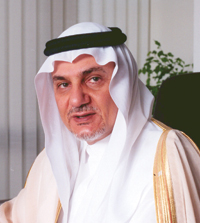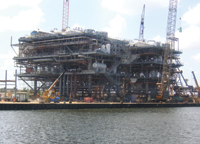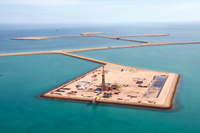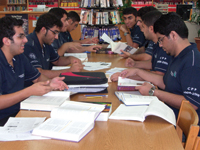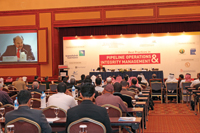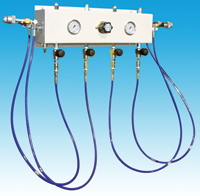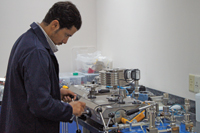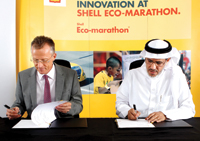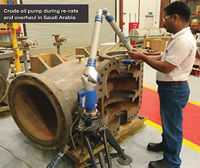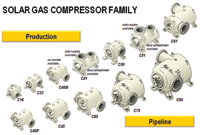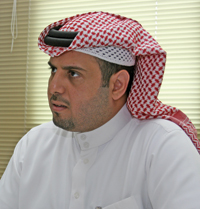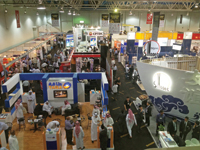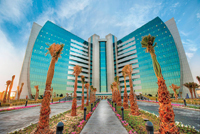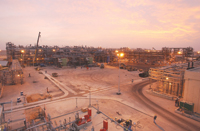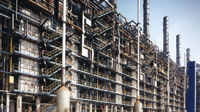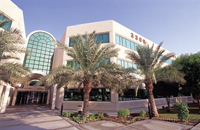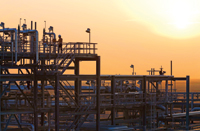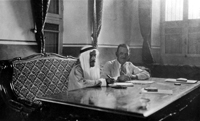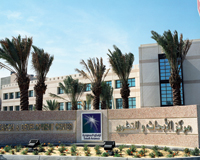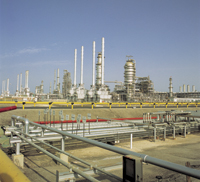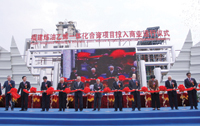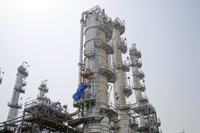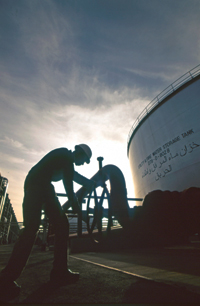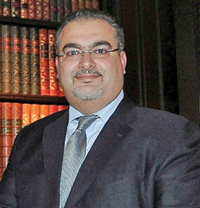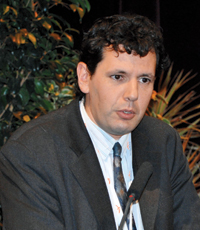
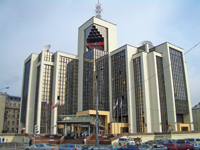 Lukoil ... finding gas at a cost
Lukoil ... finding gas at a cost
SAUDI ARABIA’S decade-long search for natural gas is ending with only two companies finding fields, and those drillers need higher prices to move forward.
Royal Dutch Shell and OAO Lukoil are nearing the end of well tests in the Empty Quarter desert. The future of any output hinges on talks with the government, which pays an official gas price of 75¢ per million British thermal units (Btu).
In the US, gas costs about $3.70 per million Btu, while Japan pays at least $12 for imports. China and India are increasing state-set rates.
“The Saudis need to raise prices to encourage new developments,” Kamel Al Harami, an independent oil analyst based in Kuwait, says. “But they need at first to find enough non-associated gas,” or fields where the fuel exists separately from oil.
The failure of Saudi Arabia’s gas ambitions would be felt around the world. The country needs the commodity to boost power generation, in turn freeing up more crude oil for export that otherwise would have been burned locally as Saudi energy use rises by 8 per cent a year.
A breakdown in talks may shut off foreigners’ last access to the nation’s hydrocarbon reserves. China’s and India’s decisions to boost gas prices to reflect consumption and spur exploration creates pressure for Saudi Arabia to follow suit as demand climbs and foreign oil companies quit the country.
“The Saudis need to raise the price,” says Syed Rashid Husain, a local independent energy analyst based in Khobar. They “can’t afford to shut down the Empty Quarter gas projects. They need every source of gas they can put their hands on.”
Saudi Arabia used less crude oil for power generation in January to April than a year earlier, according to a report from the International Energy Agency, which cited increased gas use.
To be profitable in Saudi Arabia, Shell and Moscow-based Lukoil need the government to pay more than the official price, according to two people with knowledge of the talks, who asked not to be identified because the discussions are private. An increase in prices may still not be sufficient to justify development, according to one of them.
Lukoil’s venture with state-owned Saudi Arabian Oil Co spent more than $500 million uncovering as much as 620 million barrels of oil equivalent in so-called tight gas at the Tukhman field, according to a statement. It also found gas condensate at the Mushayib deposit. Shell’s venture with the company known as Saudi Aramco found sour gas and condensates at Kidan and planned to invest about $2 billion, it says, without disclosing volumes.
“If the result of negotiations is good, we are ready to start preparing for gas production at the Tukhman and Mushayib fields, and to build a gas pipeline from fields to gas- processing plants,” Lukoil says in an e-mail. The company formed a working group with Aramco last year to negotiate an increase in gas-purchase prices with the government, it says.







































































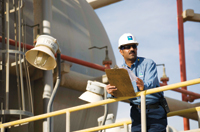
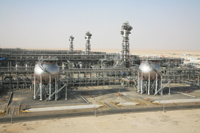
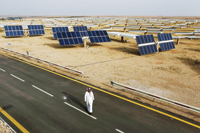


.jpg)
